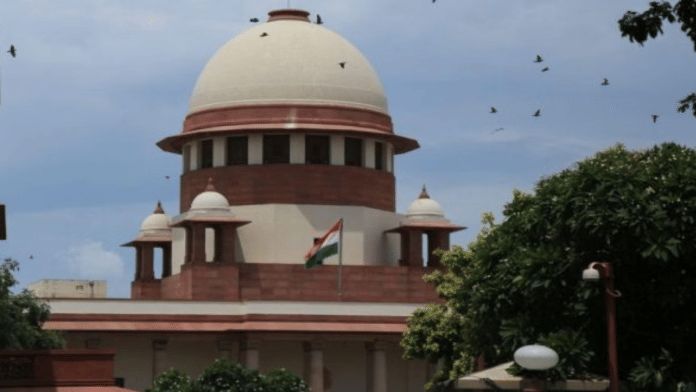New Delhi: The Supreme Court Wednesday appealed to all Hindu women to make a will of their property, especially if it is self-acquired, to ensure the assets are distributed according to their choice and avoid litigation between their parents and in-laws.
A bench led by Justice B.V. Nagarathna mentioned the appeal in its order while dismissing a public interest litigation (PIL) challenging section 15(1) of the Hindu Succession Act, 1956.
“We appeal to all women and particularly all Hindu women irrespective of their age who are likely to be in position of Section 15(1) of the Hindu Succession Act, 1956 to take immediate steps to make a testament or will bequeathing their properties including their self-acquired properties in accordance with section 30 of the Hindu Succession Act read with the provisions of the Indian Succession Act. We do so in order to safeguard the interest of not only women in this country in general but female Hindus in particular so as to avoid any further litigation”, the order read.
The section, which has accumulated controversy, states that when a Hindu woman dies intestate—without a will— with no living heir or husband, then her property devolves to the heirs of her husband and not her parents; the woman’s parents would inherit the property only if her husband has no heirs.
The court also heard petitions filed by parents of women who died intestate, questioning the constitutional legality of section 15(1). Rather than deciding them on merits, the bench referred the cases for mediation.
Advocate Sumeer Sodhi, who represented the mother of a woman who died intestate and without any children or husband, told ThePrint, “For now, the court refrained from determining the question on the constitutionality or unconstitutionality of section 15 of the Hindu Succession Act. It said that the question of law would be considered in an appropriate case.”
The bench also directed that when a Hindu woman dies without a will and her parents stake claim to her share in the property, then the parties must first go through pre-litigation mediation. A settlement reached in mediation must be treated as a decree of the court, it ordered.
Adding that a pre-litigation mediation should be done before filing any suit or proceeding in a court of law.
The apex court ordered directors of mediation centres and member secretaries of legal services authorities at the state, district or taluka level to entertain such applications.
The court Wednesday refused to entertain a PIL filed by a lawyer who sought the striking down of section 15(1)(b) that gives a woman’s husband’s legal heirs the right to inherit her property in case she dies intestate, without a husband and child.
The petition argued that there is discrimination in how properties of a Hindu woman dying intestate devolve upon legal heirs of the husband’s family as opposed to the female’s family. Without commenting on the merits of the case, the court refrained from contemplating the petition or questioning the Parliament’s wisdom to place the husband’s heirs first; instead, the court noted that in 1956, when the act was first introduced, the Parliament may have assumed that women would not have self-acquired property.
“Education, employment, and entrepreneurship of women in this country, including Hindu women, have led to their acquiring self-acquired property. If such self-acquired properties are to be succeeded only by the heirs of the husband if a female Hindu dies intestate in the absence of having sons, daughters and husband, possibly it may cause heartburn so far as the maternal family is concerned. We do not make any observation in this regard also,” the court said.
(Edited by Insha Jalil Waziri)
Also Read: Twist in Sunjay Kapur family saga: Why Karisma Kapoor’s children have moved Delhi High Court






